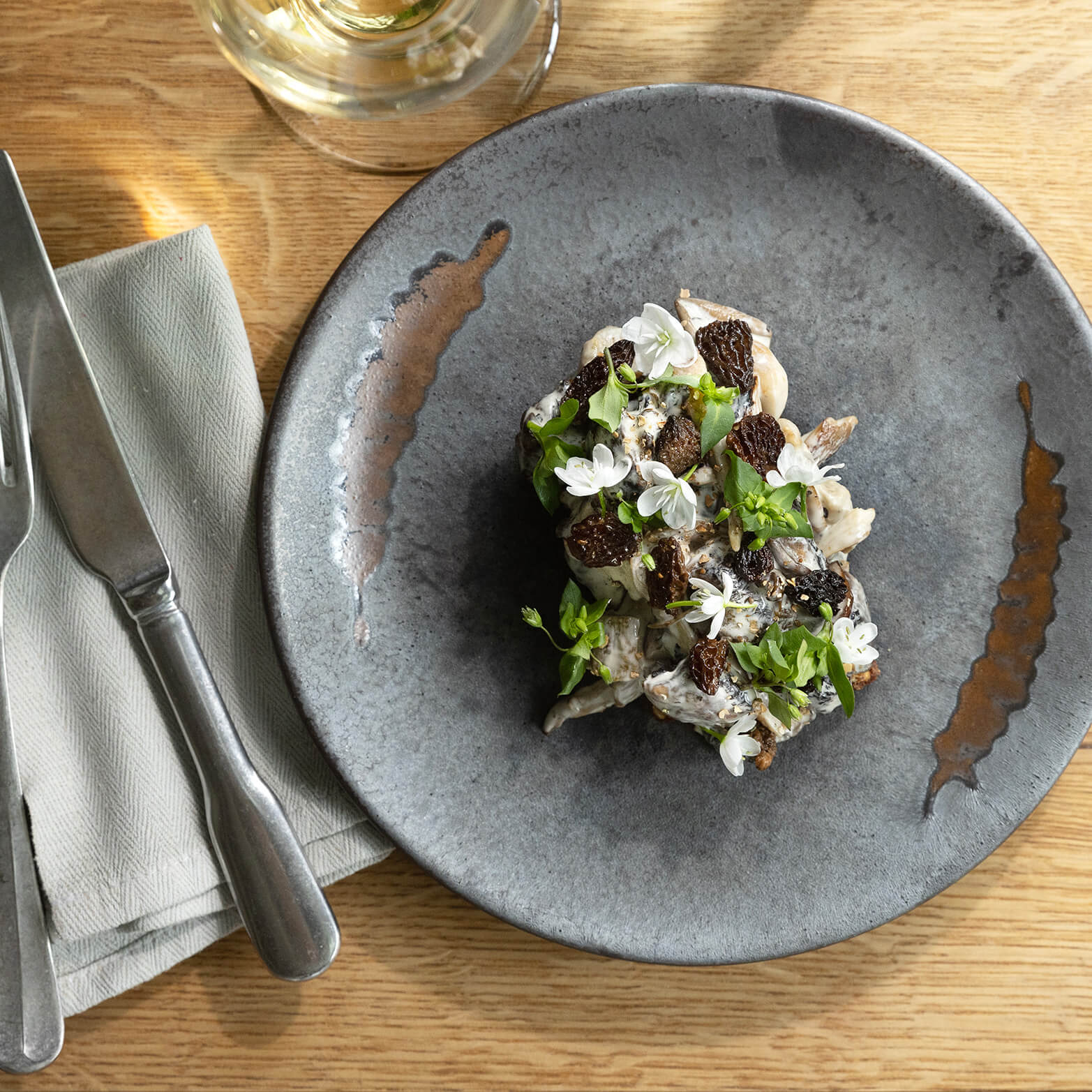
OUR SUSTAINABILITY REPORTS
IF IT CAN BE MEASURED, IT CAN BE CONTROLLED
Sustainability has become fashionable, especially in the restaurant and food industry, where many claim to work sustainably today. We appreciate the attention this topic receives in recent years, but we also believe that it is not enough to simply claim sustainability. We also want to be able to prove it.
“We often say, ‘If it can be measured, it can be controlled,'” and that’s why we are proud to present LOCA Gruppen’s Sustainability Reports.
OUR THOUGHTS
In the report, we have measured and assessed all the purchases for our restaurants to get an accurate picture of our overall CO2 footprint and what we can do to reduce it in the future.
The report also includes measurements and facts about our use of local ingredients, our level of organic produce, and animal welfare, which we look forward to further improving in our kitchens and operations.
However, for us, sustainability is not only about choosing the right ingredients, following the seasons, and minimizing food waste. Human sustainability is an equally important part of the narrative we stand for. Therefore, the report also presents all our initiatives concerning staff care and well-being within the LOCA Gruppen. If the restaurant industry wants to attract and retain the right people in the future, it requires that we collectively address outdated traditions and cultures that drive people away from our profession. In this area as well, LOCA Gruppen aims to set high standards and be best in class.
Love for food and people will always be our guiding star on the path towards a more sustainable gastronomy, and we are excited about the continued journey towards a brighter and more sustainable future, both for ourselves and our staff, for the world, and for the industry.
A OCEAN OF DILEMMAS
CONSTANT CONSIDERATIONS
The path to sustainability is filled with constant dilemmas and compromises among the factors that make up the UN’s definition of sustainable nutrition.
For instance, an intensively farmed chicken is not only significantly cheaper but also has a lower environmental impact compared to free-range chicken that prioritizes animal welfare and organic practices. On the other hand, the taste, quality, and, perhaps most importantly, ethics weigh heavier when we still choose the free-range chicken.
It would have a positive effect on the climate if we completely stopped consuming chicken or other animal products. However, it would have a negative impact on health and respect for the diversity in Danish food culture. Therefore, a purely vegetarian or vegan diet is not our approach, but we advocate for more greens and less animal products of higher quality.
Similarly, fossil fuels are the largest source of global CO2 emissions, and our choice of local ingredients is not only beneficial for the Danish economy and job market. Shorter transportation distances are also more environmentally friendly compared to longer transportation of foreign goods. However, freight only represents a small portion of the total CO2 emissions of a raw material, and the most climate-friendly choice can be found worldwide, which might be surprising to many.
Curiously, vegetables take the longest time to prepare in a kitchen, and they also require a deeper understanding of gastronomy and cooking techniques to make them taste exceptionally good.

THE FINAL PIVOT POINT
Seasonality and local ingredients are two important focal points for us. They ensure variation and sustainability, and we want to be ambassadors for the treasure trove of fantastic flavors and healthy ingredients that our region offers abundantly. Local ingredients will be prevalent, but we will also prioritize importing items such as spices, citrus fruits, exotic fruits during their peak season, as well as coffee and chocolate, among others. These are products that we don’t have readily.
